You know how your kids hit a growth spurt right as the weather changes and there’s no way on God’s earth that you can stretch last summer’s wardrobe any further? So that happened at our house. Right as the weather turned to wake-up-sweaty-degrees we realized we had to get the kids some new clothes. We decided to go to Children’s Place because we had a ton of coupons and knew we could get everything they needed without breaking the bank.
We went to the store in our neighborhood and as usual all of the customers were Black. As were all the employees. This makes sense because this store was located in a predominantly Black community. As I hunted through the racks it dawned on me that something was very wrong. For some reason all of the faces on the graphic tshirts looked like this.
And like this.
Or this.
Since we were in a children’s clothing store in a predominantly Black neighborhood with all Black employees and customers, I assumed that the shirts with the Black girl faces on them must’ve already been purchased. I asked the store clerk if they had any more shirts with Black girls on them in the back. He stared back at me blankly and said:
“I’ve never seen any shirts with Black faces on them.”
Pause.
“Wait a minute.” I replied.
“This is a store in a Black neighborhood. Everyone in this store is Black. Including all of the employees and the security guard. You mean to tell me that my Black child can’t buy a shirt with a face on it that looks like hers in a store located in her Black neighborhood?”
He handed me the card to customer service and told me that I was the first customer who had ever asked him that question. (I’m going to have a whole lot to say about this in a moment but let me stick to my point here).
I began tweeting about this incident and said
Hey @ChildrensPlace my Black daughter can’t find any shirts with Black girls on them at your stores. Why is this?
They have yet to answer. However, based on the conversation that ensued, I realized that this situation is one that needs to be fleshed out into four sections:
1. Black Kids Matter
2. What’s up with Black parental expectations?
3. Racism, money & consumer spending
4. Why not a Black owned business?
First:
Black Kids Matter
One of our primary jobs as parents is to create an environment where our children can grow. An environment that is as healthy mentally, physically and spiritually as we can make it. As Black parents raising Black kids in this society one of the most important ways we can do that is to keep our kids from failing the doll test.
Because once Black kids identify White dolls as the prettier, smarter, nicer, kinder, doll and identify the Black doll as the uglier, dumber, meaner doll that no one wants to play with, then their reality as Black people becomes exponentially much more difficult.
This means that we have to do things like protect our kids from television shows that only show Black characters as sidekicks. Because they communicate to our children that Black lives only matter enough to help White lives take center stage. We have to turn off cartoons that only show White girls as beautiful central figures because they reinforce the message that Black girls are not central figures and that Black beauty does not exist. And we have to demand that stores that open in our communities provide images that are not harmful to our children.
I will never forget the day that my son asked me why none of the pretty princesses on TV looked like me. Now, if everyone he sees as a “pretty princess” looks nothing like his own mother, how can we expect him to develop the type of loving respect he needs to have for Black women and Black beauty as he grows? Especially when every social message he gets, many from his own people, will tell him that Black women, Black hair and Black features can’t be beautiful?
We are the protectors of our children. Part of making sure that their young #BlackLivesMatter is ensuring that they see positive images of themselves everywhere they look. Because our kids live in a society run by a 24/7 White Supremacy propaganda machine that schedules in constant reminders of just how inferior it thinks Black kids really are.
Second:
What’s Up With Black Parental Expectations?
Now it is truly insane that of all the Black parents who spend their hard earned Black money in that store, that I was the first customer who ever questioned that Black store clerk about the absence of Black faces on store products. It reminded me that unlike our White brothers and sisters, when you are accustomed to being abused, unvalued and rendered racially invisible by society, you get accustomed to never seeing yourself displayed in a positive light.
So even though it would be nice to see faces on shirts that look like yours…you never really expect it. Just like it would be awesome if the police treated us with respect in our communities like they do other people…but we never really expect it. It would be great if Black people got evaluated the same way for loans as White people…but we never really expect it. It would be great if our kids got an education designed to see themselves in the curriculum and meet their specific needs as Black and Brown kids…but we don’t expect that to happen.
This is dangerous because when you are socialized to always have low expectations about your place in society—you will act accordingly. If you don’t believe me, here’s a ton of free research on it.
Which means Black kids who only see happy White faces on shirts in children’s clothing stores, and never learn how to effectively question that, become Black adults who are so used to the abuse of racial invisibility that we never voice a complaint or do what we can to make changes.
No one in this world is taught to value our children—including our children.
So we must teach the world and our kids how to see them as valuable. It is important for our sons and daughters to know that as their parents we not only see the injustices, but we will take action to stop it when we can.
This is also important for White children because when they grow up believing that Black lives are invisible and don’t matter (or that their own White lives matter more), they become cops who don’t think twice about shooting Black people. They become teachers comfortable with mass academic failure who believe Black kids just “don’t want to learn.”
Making #BlackLivesMatter requires us to make them matter in each moment. As parents we must always be bold and loud and vocal when it comes to defending our kids right to live in a world where they have value. Where they can see that value reflected back at themselves.
And sometimes that means wearing a damn t-shirt with a pretty Black girl’s face on it.
Third:
Racism, Money & Consumer Spending
We have to remember that when stores like Children’s Place come into Black communities they are doing so because they want our dollars. Which means that we have to set the terms for how these stores get access to our collective money.
That means we have to stop settling for crumbs and start taking (not just “demanding”) our seat at the all of the tables. If you want access to our hard earned Black money then manufacture some damn shirts with our kids’ faces on them.
And stores do this every day for other communities.
Could you imagine walking into an all White neighborhood and only seeing Black faces on the clothing? They would never stand for that. Nor should they.
The stores in my predominantly Black neighborhood changed overnight to accommodate the demands of the hipster White people gentrifying the neighborhood. One minute they sold produce so old it looked like it belonged in a compost bin. Next thing you know they’re selling organic eggs for $8 a carton and lemons that looked like they were picked off the tree that morning.
These stores value White lives and White dollars over Black lives and Black dollars—because they know there are consequences for ignoring your White customer’s demands. They know that White consumers tend to have higher expectations then many Black consumers. Because unlike Black consumers, White consumers are accustomed to being served and serviced in exchange for the privilege of getting their money.
White consumers—and the employees and store owners of the places they shop—have been taught their entire lives that of course White lives matter, White tastes matter, White shopping preferences matter. So the expectation is that stores in the neighborhood will adjust to accommodate the demands of new White consumers while they continue to ignore the demands of old Black consumers.
White consumers are part of an empowered consumer base. Empowered consumer bases make a note of the stores that don’t cater to them. Then they create their own stores and get rich meeting the needs of their own people.
It’s only disempowered consumers who chose instead to only picket and protest outside of stores that disrespect them; literally begging them to “change.”
So if stores like Children’s Place want access to Black communities, they need to be put on notice. If you want Black dollars, stop promoting a White-girls-only beauty standard in your stores. Especially those stores in predominantly Black neighborhoods. This is harmful to our children’s’ psyche and is unacceptable for any community that wants to raise healthy Black children.
Fourth:
Why not a Black Owned Business?
Some tweeple thought I should not be buying children’s clothes from stores that weren’t owned by Black people. They believed that demanding that White stores in Black neighborhoods cater to Black needs is like beggin massa to have muhcy on po’ slave folk. While this is a great “Black nation time” response, it misses the point and shows a surface level analysis.
My bank is Black owned. So is my dentist office, personal physician, mechanic and child care provider. When I buy soaps, toothpaste and shea butter, I take advantage of the fact that I can buy those things from Black owned businesses.
If I want handmade tie-die baby onesies with revolutionary slogans printed on them, made by a Black person, I can do that. If I want adorable baby shoes hand stitched in Ghana by an amazing women’s collective, I can do that.
But here’s the thing. If I want to buy a pack of ordinary pampers from a Black owned pamper company or store? Not so much. A set of school uniforms? School shoes? School supplies? Cleaning and household supplies? Don’t know of a single Black owned business where I can buy those basics.
(My husband always says if we could just wipe our own butts with toilet paper manufactured and sold by Black people we could fund most of reparations.)
Here’s a call to action: Black product providers need to evolve beyond high-end specialty, culture specific items. Yes your handmade tie-dyed baby clothes are cute. Yes I will buy a few pieces from your selection to supplement my kids wardrobe. But there’s a limit to how many revolutionary slogans you can fit on a baby onesie.
There is a significant need for Black-owned businesses that can provide the basics. Pampers. T-shirts. Underwear. Jeans. Socks. Sneakers. Lunch boxes, etc.
I love specialty items. But White owned corporations like Children’s Place who don’t give a damn about Black kids are making a killing simply because they provide regular, basic stuff. Stuff that we all need and would love to buy from a Black owned store but cant.
So let’s continue to work on protecting our kids from the type of insidious racism that surrounds them on a daily basis. But lets also think about how we bring our gifts to the village and meet more of our own needs so that we make White owned institutions like Children’s Place a non-mutha effin factor.
Let me know what you think. Do you demand products for your kids and family? Do you hunt for Black products? Are you able to support Black owned businesses in your community?
********
Looking for more thoughts from an Afro State of Mind? Check out my book Afro State of Mind: Memories of a Nappy Headed Black Girl now available on Amazon.com in paper back or available here for e-book download! And if you want to stay connected follow me on Twitter, “like” Afro State of Mind on Facebook or catch up on my latest youtube videos!
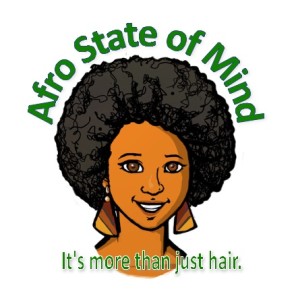
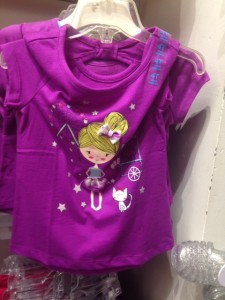
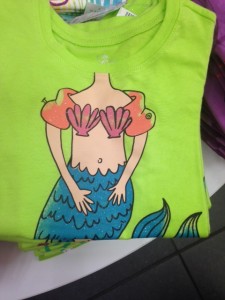
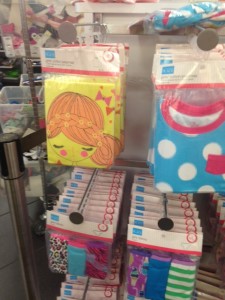
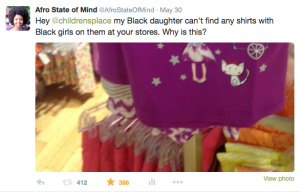
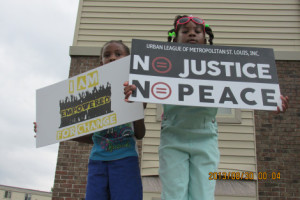
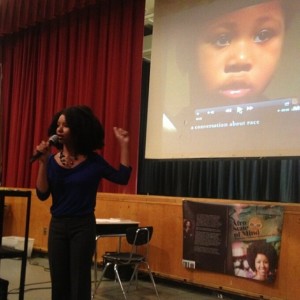
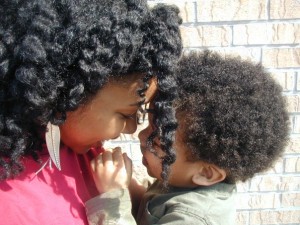
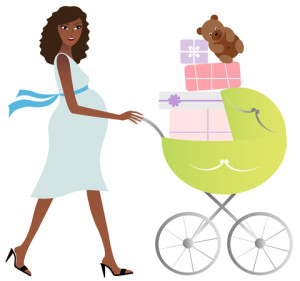
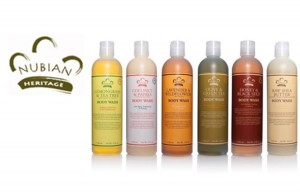
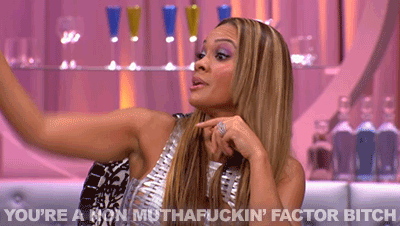


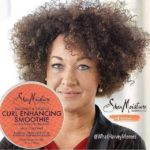
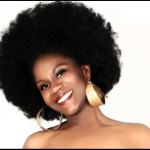
I agree wholeheartedly to every point mentioned. We’ve only recently started purchasing from The Children’s Place; their lack of diversity was not unnoticed. Then again, I’m one of those parents that rarely, if ever, purchase apparel with faces that don’t look like my own. So many additional dollars would be thrown at retailers that marketed to me.
Thanks for commenting. Yes – I agree. I’d spend a lot more money if I saw products designed with me and my community in mind. But that’s how you know racism is real. Companies would make a ton more money if they catered to Black clients – but they chose not to anyway. That’s why there is a wide open market for some Black product makers to get back to creating products that meet the every day needs of Black people. They’d clean up!
Really well said.
Thank you!
Excellent write up. I concur completely. Very happy to have found this blog.
Thank you!
I got here searching for shirts with brown faces for my children. I noticed the other day at the store that there were none and I was like,”Welp, I guess this store isn’t getting my money.” I agree with everything you said. I have strict rules about what my children can watch- that limits them greatly to watching a lot of Bino and Fino, Kirkou, Yo Gabba Gabba, Little Bill and My Brother and Me. They never even saw the original Annie or Roger and Hammerstein’s Cinderella. As far as they’re considered Cinderella is Brandy. Though I’m having a hard time finding things with a black princess and black prince. Black love is important for our children to see too.
Were you ever able to locate a black owned company for the school uniforms?